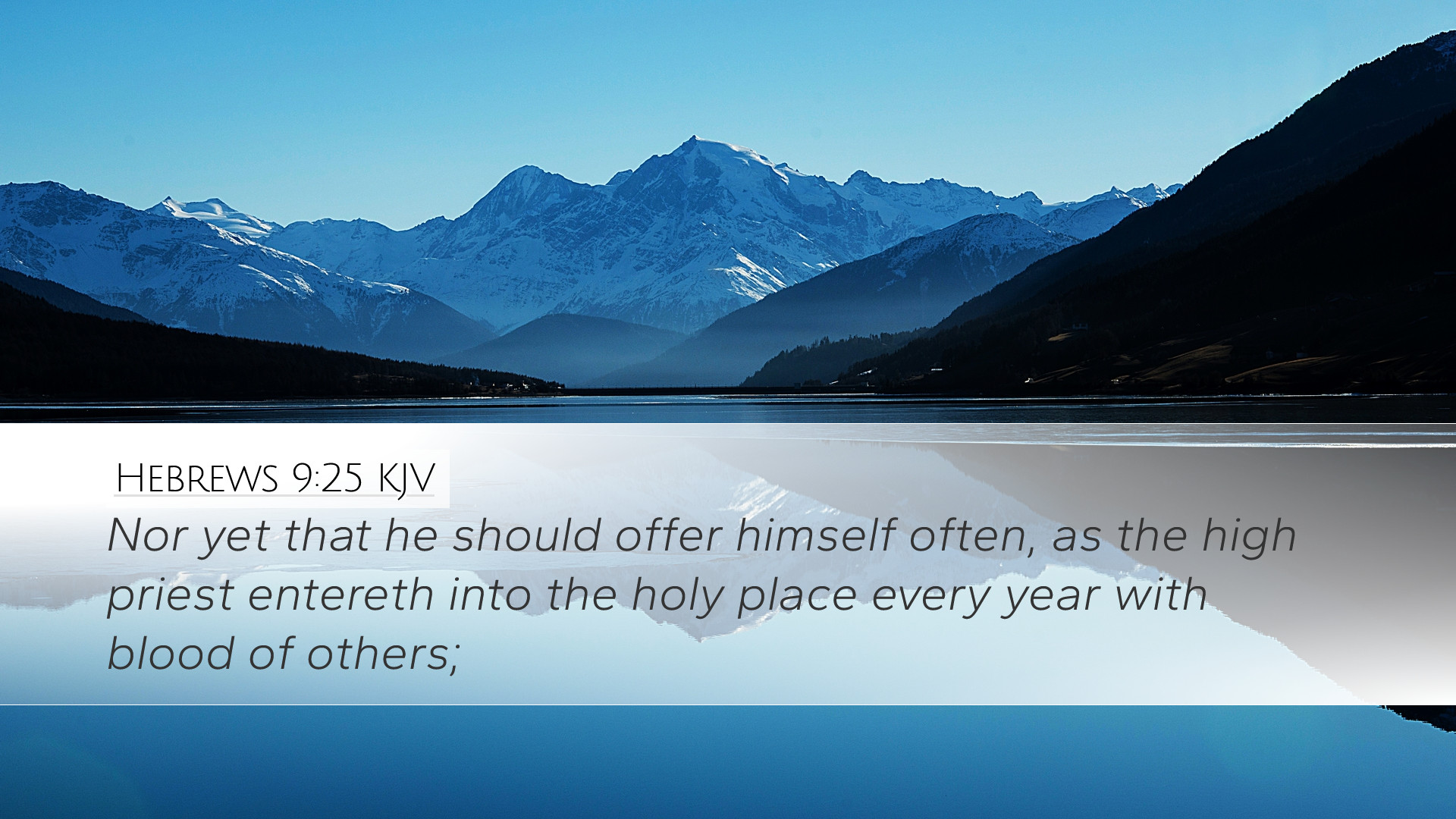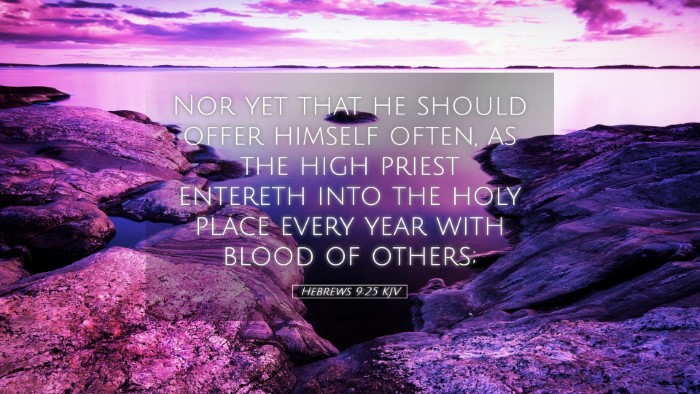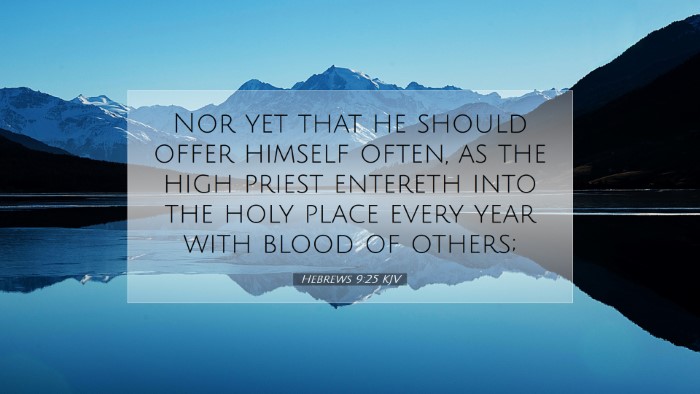Commentary on Hebrews 9:25
Hebrews 9:25 states, "Nor yet that he should offer himself often, as the high priest entereth into the holy place every year with blood of others." This verse emphasizes the unique and unparalleled nature of the sacrifice of Jesus Christ in contrast to the repetitive sacrificial system of the Old Covenant.
Contextual Overview
This verse is part of a broader discussion in the Book of Hebrews that highlights the superiority of Christ's priesthood and sacrifice. The author seeks to reassure Jewish believers about the finality and sufficiency of Christ's atonement.
Insights from Commentaries
Matthew Henry's Commentary
Matthew Henry notes that the Levitical priests were obliged to enter the Holy of Holies annually, bringing the blood of sacrificial animals. Through this, the author of Hebrews illustrates that Christ's once-for-all sacrifice renders the repetitive rituals obsolete. Henry emphasizes the permanence of Christ's offering, which sits in stark contrast to the continual and temporally effective sacrifices of the Old Covenant.
Albert Barnes' Notes
Albert Barnes provides a detailed insight into the implications of this verse, elucidating that Christ’s sacrifice was singular and all-sufficient. He underscores that if Jesus were to have offered Himself repeatedly, it would imply that His death was only partially sufficient. Barnes argues that such a notion would undermine the efficacy of Christ's atonement, thereby affirming that His one offering is adequate for all humanity.
Adam Clarke's Commentary
Adam Clarke elaborates on the thematic elements of atonement. He mentions that the high priest's entrance into the Holy Place symbolizes a temporary atonement that was never fully efficacious. Clarke emphasizes that Christ's singular act abolished the need for continual sacrifices, which were merely symbols pointing towards the ultimate sacrifice yet to come. Clarke reflects on the completion of atonement through Christ's blood, which he affirms as perfect and eternal.
Theological Implications
This verse raises profound theological implications regarding Christology and soteriology:
- Finality of Atonement: The text substantiates the doctrine that Christ's death was sufficient to redeem humanity, eliminating the requirement for regular sacrifices.
- Christ as the Eternal High Priest: Hebrews 9:25 affirms Christ's position as the ultimate mediator between God and humanity.
- Contrast to the Old System: The verse serves to highlight the inadequacies of the Levitical priesthood, directing believers to the superiority of Christ’s ministry.
Applications for Believers
This passage invites believers to several practical applications:
- Gratitude: A reminder of the depth of Christ's sacrifice should lead to profound thanksgiving and worship.
- Assurance: Believers can have confidence in their standing before God through the sufficiency of Christ's sacrifice.
- Evangelism: Understanding the finality of Christ's offering empowers believers to share the Gospel, emphasizing grace rather than works.
Conclusion
Hebrews 9:25 serves as a cornerstone in the understanding of Christ's singular and final sacrifice. The insights from respected commentaries deepen our appreciation and comprehension of the theological reality that Christ's death was not only sufficient but definitive in securing salvation for all who believe. Through this passage, both scholars and laypersons alike are invited into a richer understanding of God's redemptive plan through Jesus Christ.


